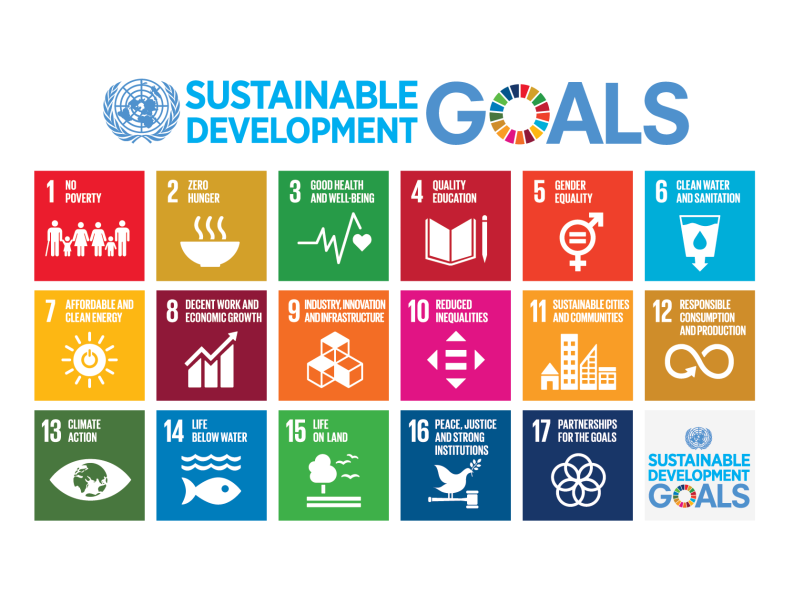Author: Dr. Hans Bender, former VP Procter & Gamble, Professor at the Sustainability Management School
Industry’s role is to provide valued goods and services to individuals and society at large. Successful industries not only address primary needs but are also aware of broader societal requirements in the social and the environmental field. They for instance treat their workforce fairly, proactively address environmental concerns, play a key role in communities and react timely to evolution in habits and values that require change in product and service offerings.
Today’s industries have reached a level of complexity, where it’s increasingly difficult for leadership to ensure a good balance between economic, ecological, and social needs. The focus is typically on financial success and by “ticking a few boxes in the ecological and social area”, industry leadership hopes the company will be successful, ideally sustainable. Organizational set-up is perfectly lined up with the results aspired: heavy focus on financials with at best occasional input to ecological and social aspects.
It doesn’t take a lot of imagination to see how industries will fail, unless they achieve a better balance between the three pillars of sustainability: economy, ecology, and society. Examples are endless: food industry and obesity, automotive industry and climate/pollution, banking industry on transparency and fair practices, textile industry on supply chain, energy industry on renewables, chemical industry on safety, IT industries on responsible data management and so on.
To ensure that a company or an industry is sustainable requires knowledge, commitment and an organizational set-up that makes sustainability the centerpiece of corporate activity. This in turn requires leaders, who understand the fundamentals of sustainable development without a compromise in the ability to lead successfully economically. These leaders not only need to be able to ask the right questions but also lay out comprehensive strategies, which assure holistic success, short – and long-term.
In larger corporations, where the CEO and the Board typically lay out broad business strategies and define expectations, it would be the middle management (level one and two below the Board), needing this detailed understanding of a sustainable industry; for smaller companies with more hands-on management, it could well be the CEO or the entire Board.
SUMAS have identified this knowledge gap and have developed academic programs with the goal to prepare future industry captains for leading companies towards sustainability. For example, it is important to learn the basic concepts in sustainability, such as
- economic, ecological, and social aspects requiring integration;
- the role of the UN with its goal setting (MDG’s and SDG’s);
- the approaches of the World Business Council;
- key terms (ecological footprint, ecosystem services, planetary boundaries)
- environmental focus areas ( energy, waste, water, materials)
- key environmental strategies ( Low Carbon Economy, Resource Efficiency, Circular Economy, Safety).
SUMAS students also develop sensitivities to societal needs, which industries are expected to address, yet often miss or discover too late. UN SDG’s offer a broad overview, which can easily translate into concrete actions such as health considerations for e.g. food and automotive companies or workforce questions regarding equal gender policies or labor laws along the supply chain – to just name a few examples.
A methodological approach to sustainability in industry will investigate
- how lifecycle thinking discovers vulnerabilities and opportunities,
- how one assesses a portfolio of products or services against sustainability criteria
- how one creates multi-stakeholder engagement to assure broad-based input and support
- how one assesses a market for readiness in innovations on sustainability and
- how markets for sustainable products/services can be developed.
It portrays industry as the societal leader in sustainability, not as its roadblock. The resulting company/industry is a more valuable entity – to its shareholders, to its employees, to society at large.
It would be naive to believe that investments in the sustainability of a company/industry would not have to follow the rules of the financial community, especially in the long run. While today these expenditures for sustainability are often regarded as “taxes”, unavoidable “write-offs”, or “price to do business”, companies on their successful path to sustainability see them as investments with strong pay-out potential.
These include enterprises that have addressed social aspects in their work-force and are hence attractive employers with highly motivated employees, companies that have a good conscience regarding their supply chains, and industries that lead transitions to non-fossil energy and renewable feedstock. They have “no skeleton in the closet” when they talk to their investors and are at much lower risk of bad news for financial markets. They do not have to fear the day, when “it all comes to an end”, because the long-term questions haven’t been addressed, yet are waiting for being judged by the markets.
In conclusion, while some of the activities pursued towards sustainability need to be done collectively as an entire industry or even as a whole society, there is room for individual companies seeking competitive advantage the way we know it today when addressing traditional needs. As sustainability goes mainstream, those companies that address it better will win. Sustainable products will gain market leadership, proprietary innovations in sustainability will be rewarded.
Often sustainability is (mis) understood as “going back in time”, as “compromising on what humanity has come to value.” Quality of life does not have to suffer, in fact can continue to grow, especially in developing markets, IF we can unleash innovation. And that’s why industry is so critical to a sustainable society: it’s industry that has the insights and the capabilities to deliver sustainability for all – if only we can get it integrated into the well-oiled machinery of a free economy.

